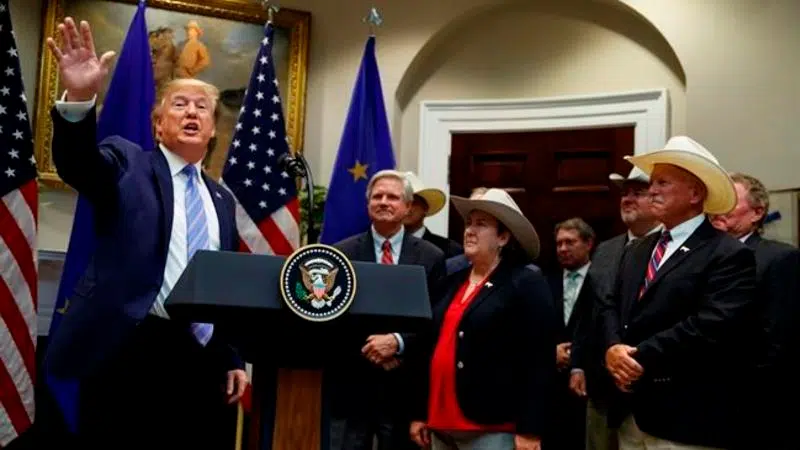
Trump says new agreement with EU will boost beef exports
WASHINGTON — President Donald Trump celebrated a new agreement Friday that is projected to increase beef exports to the European Union by more than $270 million a year once it is fully in place.
Trump portrayed the agreement as standing up for farmers and ranchers. Producers have been hurt by retaliatory tariffs that China imposed after Trump imposed 25% tariffs on $250 billion in Chinese products.
The signing of the agreement comes the day after Trump increased pressure on China to reach a trade deal by saying he will impose 10% tariffs Sept. 1 on the remaining $300 billion in Chinese imports he hasn’t already taxed.
“Opening markets for our farmers is about more than just an industry. It’s about a way of life,” Trump said at the White House before the U.S. trade representative and an EU official signed the agreement.
